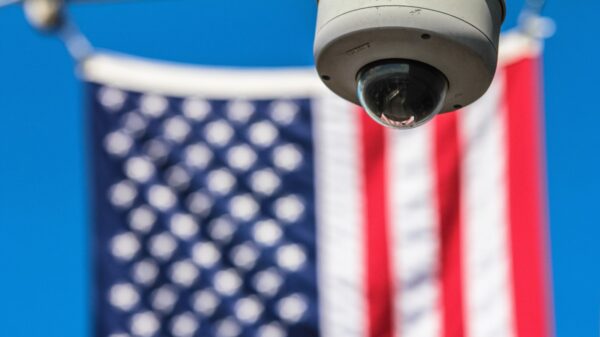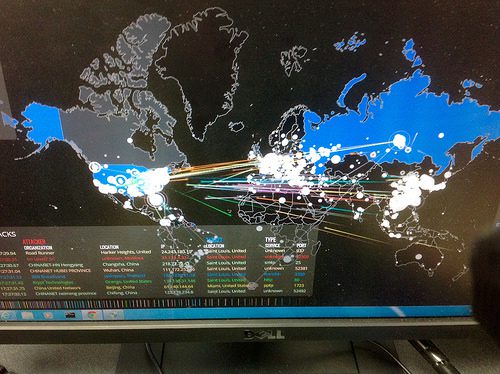Espionage! Sabotage! Theft! Unfortunately the words have become all too familiar. After all, these are the aims of cyberwar.
Questions cascade as cyber warfare becomes part of our daily lives. At the end of 2013, forty million Target accounts were hacked. In 2015, four million personnel files were stolen from the United States government. In 2016, five hundred million Yahoo users’ data were illegally accessed. And, of course, more recently we have become familiar with international political hacking.
The changing nature of our enemies
It is often said that the United States is fortunate to be an ocean away from our enemies. Geographically this remains true, but our technology has made our relative isolation irrelevant. Today, cyberwar is the most important assault we face. Are we prepared to defend? Do we have a strategy for going on the offensive?
Famed U.S. Army Gen. John J. “Black Jack” Pershing said “The deadliest weapon in the world is a Marine and his rifle.” Pershing’s glories date to the beginning of the 20th Century. I wouldn’t for an instant suggest that he is wrong, but today’s enemies are often using weapons that can’t be taken out by a rifle or a missile or a drone.
Mired in bureaucracy
Several nights ago Lt. Gen. Guy Swan (US Army Ret.) spoke to the Aspen Fellows about our cyberwar readiness. He serves on the Aspen Institute Homeland Security Group, a bipartisan group that mixes homeland security and counterterrorism experts. When talking about competing for top talent that enabled companies like Google (now Alphabet), Apple, Amazon and others, his confident voice receded.
Recruiting and retaining skilled computer specialists is very difficult. I know the problem first hand. I am sure that military and civilian agencies seek to recruit the best but the competition is fierce and hierarchal structures are unattractive. A Fortune article noted: “One of the things that tech companies do really, really well – they don’t rely a whole lot on hierarchy.” Washington’s institutions marinate in hierarchy.
The problem with the “consulting class”
In February 2016, the United States Government sued Apple to require them to let the FBI access the iPhone of one of the San Bernardino shooters. Our top law enforcement agency could not get into a consumer device just as the government’s Office of Personnel Management couldn’t protect personnel records.
The lawsuit against Apple was quietly dropped when a technology provided by Cellebrite, an Israeli subsidiary of a Japanese company, Sun Corporation, facilitated access. Apple does not show up on a list of technology contractors that might protect government sources.
And when you look at the government’s primary technology contractors you find defense firms like Lockheed-Martin, Raytheon, Boeing and General Dynamics leading the list. The lineup does not include America’s top five cloud computing service providers, Amazon, Microsoft, IBM, Alphabet and Salesforce.
A report released this month by Bay Area think-tank Lincoln Labs outlined the obstacles facing new companies and their products, often our leading source of innovation. Derek Khanna, one of the report’s four authors, says that most government contracts are awarded to firmly entrenched, old-line companies based on the fact that they employ large portions of the “consulting class.”
America is at risk and its central government faces powerful institutional and cultural headwinds.
A little preparation would go a long way
In wars past, Americans have been pressed into action. In the hot wars of WWI, WWII, Korean and Vietnamese, the nation had a draft. Combatants were secured, trained, and equipped with the tools of combat. Today, those gifted in the use of technology, are not drafted and government recruiters are handicapped.
Ten post-9/11 veterans were elected to Congress in 2016; six are Republicans and four Democrats. Each knows the threats we face first hand. A bipartisan caucus should press for a thorough modernization of our cyberwar preparedness.
The recruitment and retention of Artificial Intelligence (AI) talent should be a top priority. AI programs can discern thievery and quickly change the locks. We clearly need better locks to protect us from the coming cyberwar.
Photo by byzantiumbooks 


























